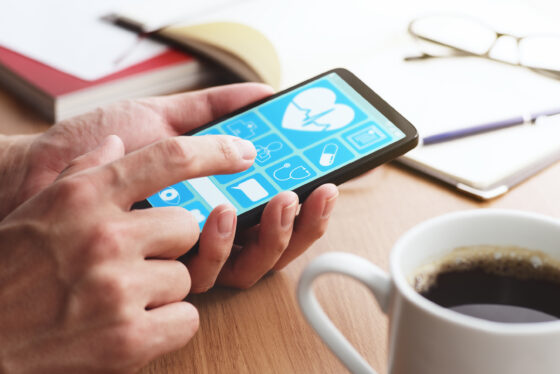
Are e-health applications reliable? They represent a real vein and their number is exponential on the download platforms. However, according to a French study, only 21% of them have undergone medical validation before being put online.
Digital health is growing. On the IOS and Android interfaces, the number of e-health applications doubled between 2013 and 2020 to 327,000 applications. In 2020 alone, “Every day, more than 250 e-health solutions were added to app stores, or 90,000 in the year”explain the researchers in their study published in the Journal of Medicine.
But beware, not everyone is equal. According to specialists, 64% of applications are not subject to scientific validation before being accessible. Only 21% of the applications have been the subject of a randomized study, the highest degree to demonstrate their effectiveness.
To conduct their research, the researchers created a scoring tool called Medical Digital Solution (MDS), consisting of 26 questions. It is based on recognized criteria such as those of the Haute Autorité de Santé (HAS) and the European Society for Medical Oncology (ESMO). It is intended for developers, investors and decision makers of hospitals. The specialists sent this questionnaire to the developers via the social network Linkedin.
A total of 68 applications were assessed. Of these, 22% are oncology applications and 22% are general health solutions. 47% of applications rely on remote monitoring by healthcare professionals.
“Our research shows that there is a clear margin for improvement! Patient associations want transparent information about the clinical usefulness of these tools and they are right. Evaluations need to be strengthened, especially for developers who charge for their app.” emphasizes Professor Denis, president of the National Institute of e-health at the origin of this study.
(ETX Daily Up)